If you are like me, you don’t like labels very much. I do like people. But they tend to show too much variety to fit into rigid labels. The relationships we have are too complex to describe them with words like “friend”, “spouse”, “fuckbuddy”, “comrade”, or “coworker”.
When I think about who impacts my life in which ways and who is important to me, then I can’t rely on these terms. And what’s also bothering me: these terms don’t describe people, they describe functions. Of course people who I rely on fulfill certain needs of mine, and I need words to describe that, but why they are important to me goes beyond that.
So I found six dimensions which any relationship has: Time, Interests, Körperlichkeit, Decisions, Exclusivity, and Communication. They help me think about a person, and understand what role they play in my life. Let’s dive into it:
Time: how much time do we spend together?
For some people this is obvious – maybe we live or work together, so how often we see each other depends on external factors. Other people I simply see because we go to the same events or meetings.
There are some people I am very glad to hang out with for a few days straight when I visit their city, and then we catch up; but when I’m elsewhere, maybe we don’t talk for months, and that’s fine.
In relationships where the word “love” is spoken out loud, this is often an early topic. Do we see each other once a week, more often, less often… this can of course change, with life circumstances, or because honeymoon phases come and go. But it makes a difference whether you talk about it; and you don’t need to say the L-word to open this conversation.
Interests: do we share hobbies, or common topics?
Some of my relationships have been fueled by fun activities, others have been fueled by righteous anger at the systems of oppression around us. I’m very glad about people with whom I can share both of these emotions 😀
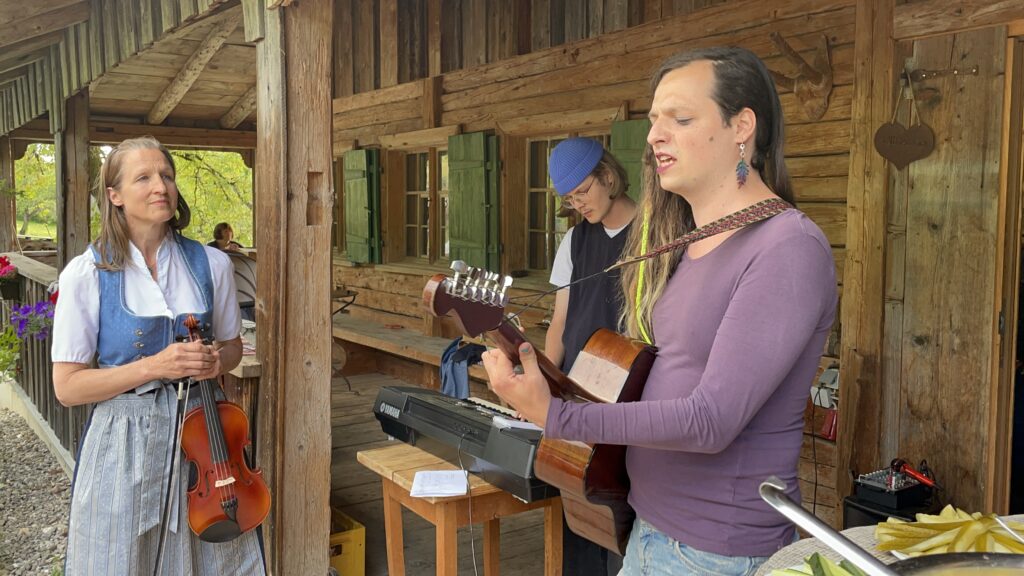
What often makes me sad is when a topic/action/project is over, and the relationship dwindles after that. With “soulmates”, other topics will probably continue the relationship, because we have similar reasons for our interests. Those people I meet again and again, even under completely different circumstances.
Then again, I also have been in relationships where we… didn’t talk so much:
Körperlichkeit: how do we treat each other’s bodies?
This can vary so much. I have had relationships only because I finally wanted to lose my virginity (bad idea). I’ve had relationships which died when sex wasn’t fun anymore. I’ve had relationships where the sex life started bad and got much better over the years, when we gained trust and started to understand each other, instead of taking each other’s bodies for granted.
In some friendships, physical touch is an important part of our closeness, but it is not really a sexual Körperlichkeit. Actually, with one of these friends I first compiled this list of six criteria: we were confused about our relationship, so we had to make up new ways to view it.
Thinking outside of the box is a good lesson here, and I’d like to quote a poem I found in their bathroom: “you should kiss your friends’ faces more.”
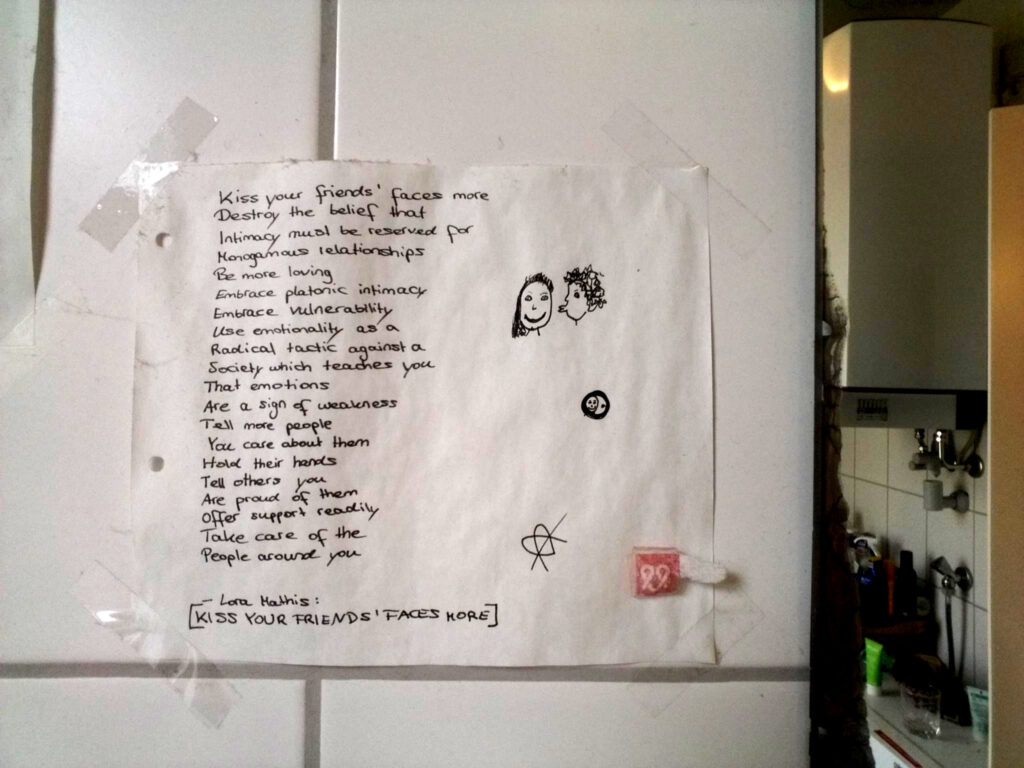
Decisions: do we involve each other in long-term plans?
When you quit (or worse, started) your last job – who did you talk to before you made the decision? Who was affected by it?
There are many life decisions and transitions which affect our loved ones – whether we transition between flats, genders, cities, ditch our phone, or dye our hair. Whether we join a political group. Whether we start sharing our money in a collective. Whether we burn our driver’s license.
How much you let others influence your decisions may vary, there is a lot of space between total individualism and total collectivism. And there is a difference in talking to others before making a decision and asking for their consent.
And there are certainly some decisions, which I only had the courage to make, because I didn’t have to tell anyone.
Exclusivity: is there something I only do with this person?
For many people, there is only the relationship – for them it goes without saying that sex with others is a no-go. But this isn’t actually a very well defined default setting – some also don’t want their significant other to have friendships with people of “the opposite” gender, some are interested in threesomes… even in monogamous relationships, the assumptions what part of the relationship are exclusive can differ.
While it’s not really my thing, there are good reasons for exclusivity in relationships. Some people need it to build up trust, which is necessary for any relationship to become deeper. For some, it is the same social proof which lies in any sacrifice: you are willing to give up “doing the deed with others”, just for me? This is a powerful love move indeed, even if it has a toxic note. A sacrifice only matters if you sacrifice something valuable, after all.
Exclusivity doesn’t have to be about sex, by the way. It can be the dedication to only watch a certain TV series with each other; or some other kind of common activity like dancing. A powerful form of exclusivity touches body modifications: “only you can give me tattoos” carries an even deeper magic than sex.
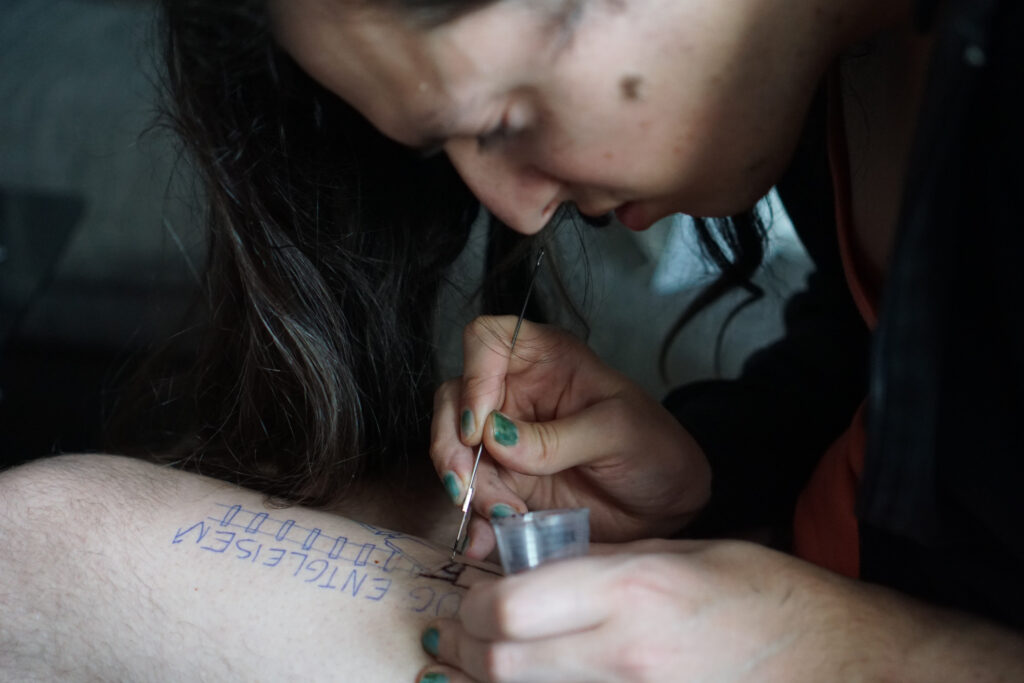
What’s important in distinguishing healthy from toxic exclusivity is good communication. It is the sixth relationship criterium, which touches all the others:
Communication: can we talk about our relationship?
This one is my favorite, because it is so meta. And if you read the article until here, you probably like it as well: thinking and talking about how we relate to each other. This is how we grow as people; how we can avoid repeating the mistakes of our past; and how we can find out what’s really good for us.
A friend once gave me a nice tool for talking about relationship needs, this sheet of paper (PDF version). The original source is lost, unfortunately. You can fill it out together with a partner:
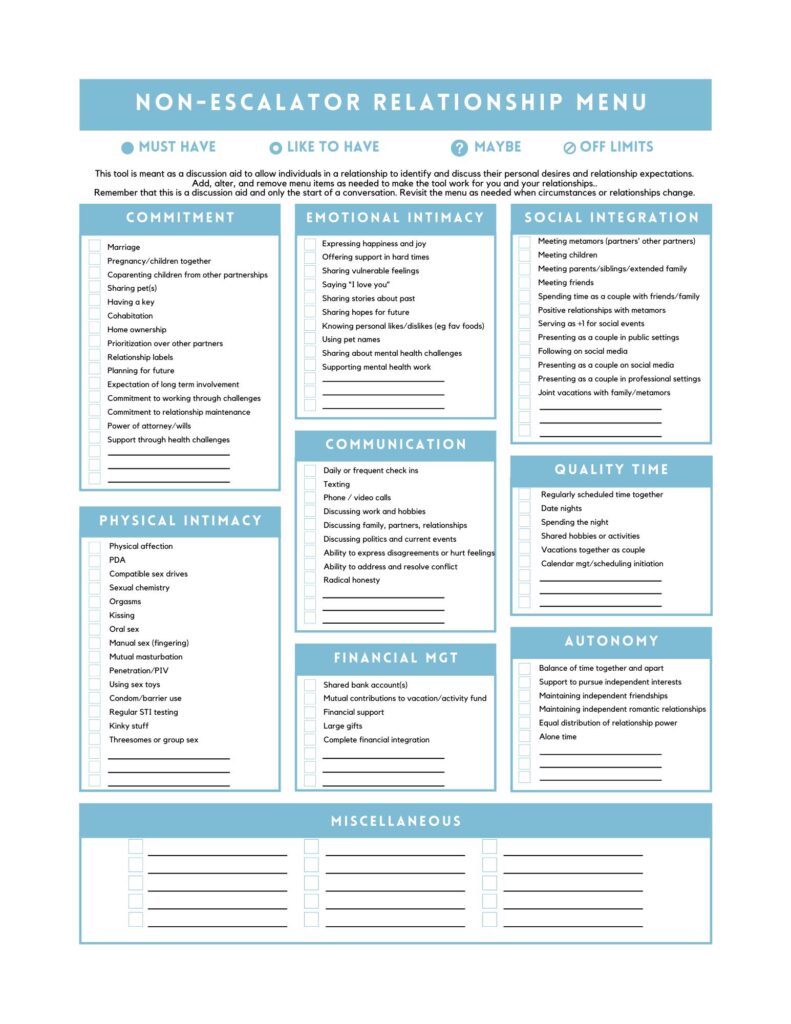
The most interesting conversations I had in relationships which had already transitioned through different modes in the past. If you want good and honest feedback, ask your ex partner (but maybe wait a few years after the breakup). One of the things I’m proud of the most is how many people stayed in my life after we stopped exchanging body fluids.
People with whom I already shared flats, glorious moments, passionate struggles (against each other or against the state) – those are the people who know me the best.
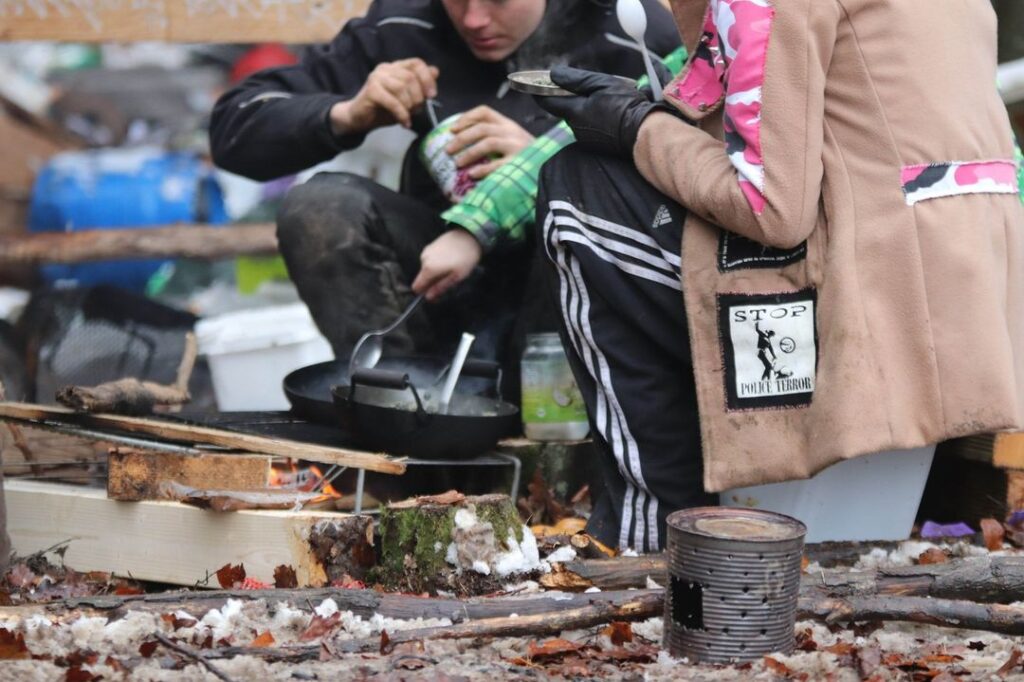
Dear reader, I hope we meet one day. At a campfire, with wine and a guitar. And then you tell me about the people you had to think of while reading, and we can talk about love and rage and passion.


Ich schau immer wieder gern auf deinen Blog, weil ich dich und was du schreibst, mega inspirierend finde. Den Januar-Eintrag habe ich tatsächlich voll übersehen, aber mich gerade umso mehr über diesen gefreut, weil ich seit ner Weile auch eine Beziehung mit zwei Menschen führe, für die mir bisher die Worte gefehlt haben. Deine Kategorien helfen da sehr. Und ich hoffe, wir sehen uns sehr bald mal wieder an einem Lagerfeuer mit Gitarre, aber ich bleib beim Bier 😉
Fühl dich kräftig umarmt, wenn du magst!